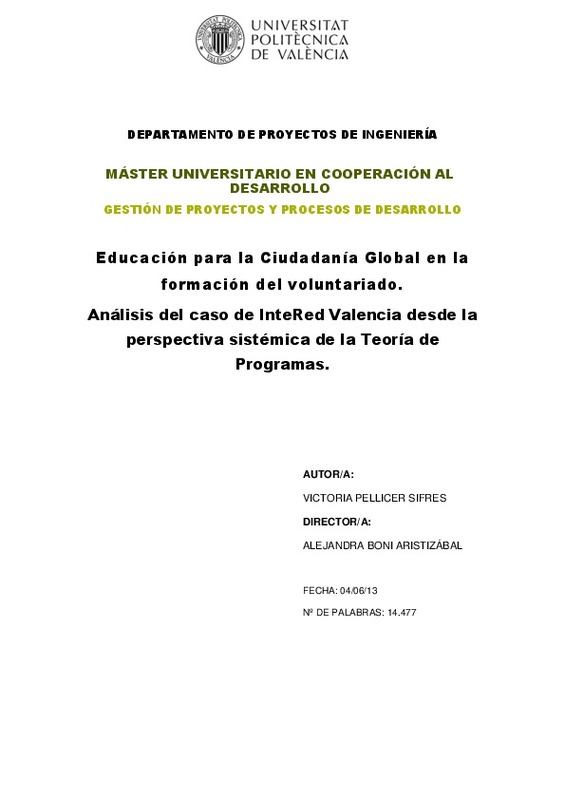JavaScript is disabled for your browser. Some features of this site may not work without it.
Buscar en RiuNet
Listar
Mi cuenta
Estadísticas
Ayuda RiuNet
Admin. UPV
Educación para la ciudadanía global en la formación del voluntariado. Análisis del caso de Intered Valencia desde la perspectiva sistémica de la teoría de programas
Mostrar el registro completo del ítem
Pellicer Sifres, V. (2013). Educación para la ciudadanía global en la formación del voluntariado. Análisis del caso de Intered Valencia desde la perspectiva sistémica de la teoría de programas. Universitat Politècnica de València. http://hdl.handle.net/10251/39714
Por favor, use este identificador para citar o enlazar este ítem: http://hdl.handle.net/10251/39714
Ficheros en el ítem
Metadatos del ítem
| Título: | Educación para la ciudadanía global en la formación del voluntariado. Análisis del caso de Intered Valencia desde la perspectiva sistémica de la teoría de programas | |||
| Autor: | Pellicer Sifres, Victoria | |||
| Director(es): | ||||
| Entidad UPV: |
|
|||
| Fecha acto/lectura: |
|
|||
| Resumen: |
[EN] The research is based on studying the Volunteer Training Plan of the NGO InteRed, in the delegation of the Valencian Community. It first examines whether the plan can be considered a practice of First Generation ...[+]
[ES] La investigación se basa en el estudio del Plan de Formación de Voluntariado de la ONGD InteRed, en la delegación de la Comunidad Valenciana. Se analiza en primer lugar si dicho plan puede considerarse una práctica ...[+]
|
|||
| Palabras clave: |
|
|||
| Derechos de uso: | Reconocimiento - No comercial - Sin obra derivada (by-nc-nd) | |||
| Editorial: |
|
|||
| Titulación: |
|
|||
| Tipo: |
|







